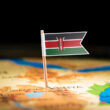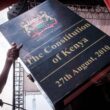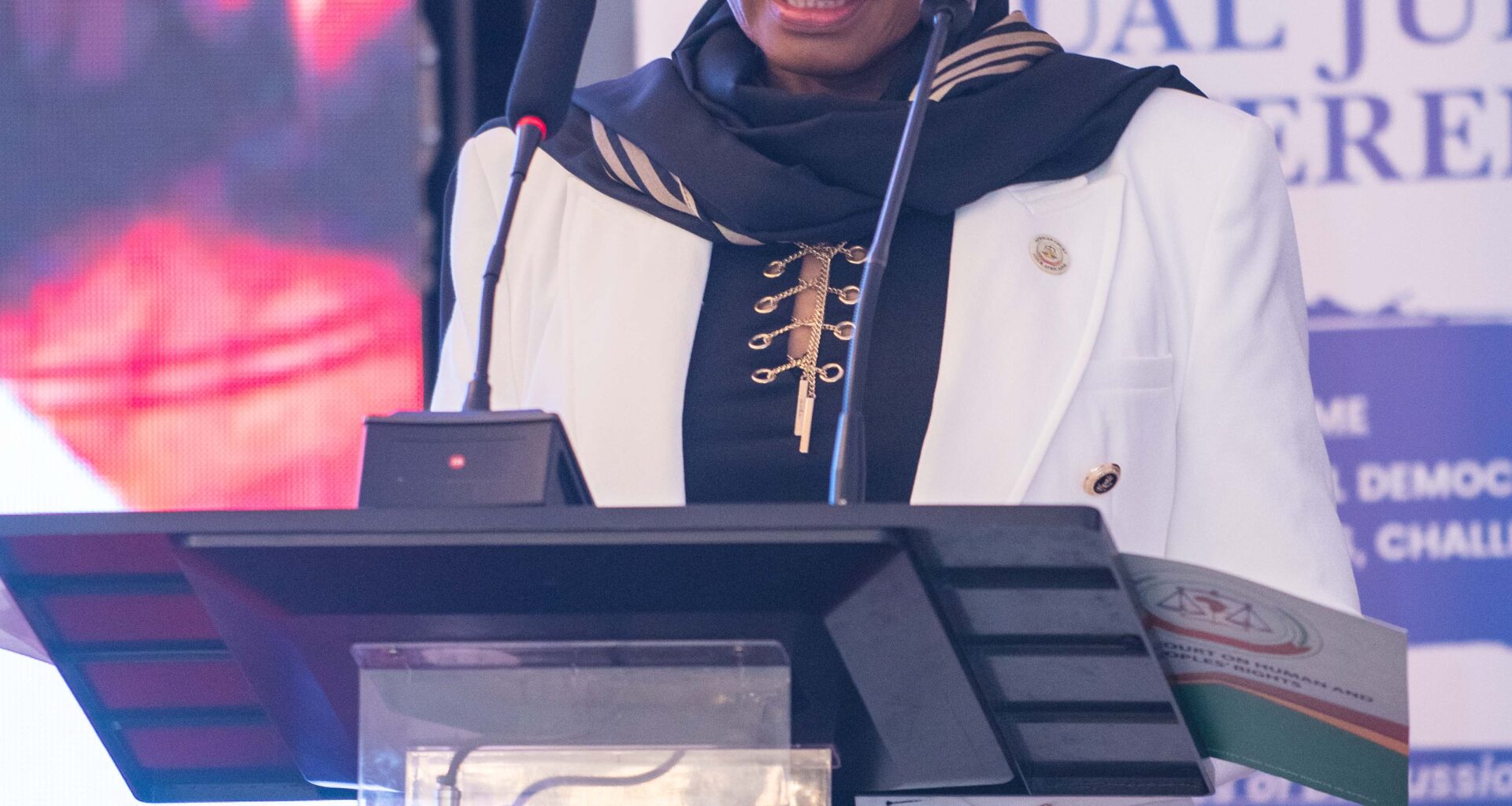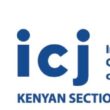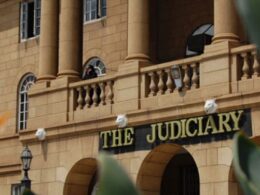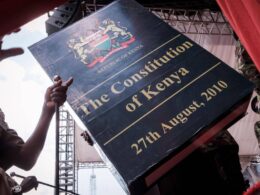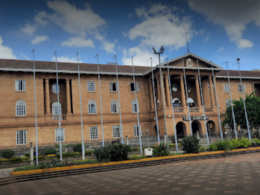It is with great appreciation and honor that I stand before you today to deliver this keynote statement. This Conference in my view is very timely as it offers participants an opportunity to have a frank and constructive exchange on one of the most sensitive, but yet important issue shaping the socio-economic and political landscape of our continent. As we all know, elections have become the most bitterly fought political battle not only in Africa but across the globe. The drama of the 2020 presidential elections in the US is still very fresh in our minds, and upto date, former President Trump has not conceded defeat to President Biden.
Under the broad theme ‘Reflections on Electoral Democracy in Africa: Trends in judicial decisions, challenges and lessons’, I have been asked to speak on ‘the role of the national and regional Courts in addressing election related human rights violation’.
This is a very interesting topic which is at the same time worthwhile, because as we all know, most elections nowadays in Africa end up in Court, and some of the hot spots and conflicts on the continent today stem from or are related to how elections were managed.
INTRODUCTION
Most African states carry out regular elections. Although they are conducted in a specific constitutional and legal framework aimed at ensuring a peaceful transfer of power, elections in Africa are increasingly characterized by electoral violence. If left unaddressed, electoral violence has the potential to destabilize states, result in civil conflict and affect regional stability and security.
Although election-related violence is a widespread phenomenon on the African continent, its causes and consequences are diverse. The adoption of multi-party democracy brought about the logic of periodic renewal of government leadership through elections. However, violence has usually ensued in situations where there is a strong possibility of changing existing power and the incumbents are unwilling to cede power. This is due to the fact that many African states still have an intolerant political culture, with different practices employed to manipulate the electoral outcome. Such practices include the use of security forces to harass opponents, bias on the part of electoral management bodies, restriction of movement of political opponents through establishment of ‘no-go’ areas during campaigns, expenditure of public resources to campaign for some parties, and manipulation of ethnic identities.
Given that elections are complex processes, they are susceptible to errors that can generate protests and objections by parties competing for political positions. In anticipation of these inevitable errors, electoral processes should provide for recourse mechanisms that aggrieved parties may exploit to redress perceived or real injustices.
Societies with a legacy of unequal political representation and developmental disparities are vulnerable to election-related violence. Regions perceiving themselves as victims of long periods of political exclusion and economic marginalization come to regard elections not merely as a process of selecting the country’s leaders but as a tool to overcome their predicament. This contributes to raising the stakes and the related tensions, which, unless properly managed, can degenerate into electoral violence.
Among the consequences of electoral violence are; threats to democracy, peace, stability and human development. It violates the citizens’ right to vote. It can also threaten the fundamental right to life, personal security, and property. It undermines democratic transitions in countries emerging from dictatorship and conflict, furthering instability and social tensions in fragile states, increasing uncertainty and risks for investors, and jeopardizing growth and development in low-income economies.
Although election-related violence occurs at the domestic level, it has regional implications on peace and security. If left unaddressed, electoral violence has the potential to destabilize states, result in civil conflicts and affect regional stability and security thus adversely impacting sustainable human development.
The increasing prevalence of electoral violence on the continent highlights the need to develop and nurture institutional mechanisms for resolving electoral conflicts at the national, regional, and continental levels.
There has thus been increasing judicialization of electoral contests, as evidenced by the growing body of electoral jurisprudence developed by constitutional and supreme courts, as well as sub-regional and continental Courts across Africa.
Role of the national and regional courts in addressing election related human rights violation;
NATIONAL COURTS
Judicial adjudication forms part of the electoral dispute resolution. Almost all African constitutions or electoral laws recognize that things can go wrong with elections and provide for the possibility of redress. Courts are empowered to hear electoral disputes either as courts of first instance or in an appellate capacity on appeal from an administrative body. The judiciary has therefore become a major player in the resolution of electoral disputes in order to prevent escalation of violence that usually attends election processes. In a positive step towards attainment of democratic consolidation, politicians and voters in Africa are increasingly using the judicial process to resolve election-related disputes. This may be regarded as an affirmation of the confidence in the role of the judiciary as a credible mediator in political disputes. Even in instances where disputed election results are not nullified, the fact that litigants in election petitions are given a fair hearing by the court to vent their grievances is enough to obviate the need to resort to violence. Thus, in countries like Ghana, Nigeria, and Uganda, where election petitions challenging contested presidential election results were dismissed, the judiciary’s role has been appreciated for enabling peaceful regulation of competition among the political actors.
A number of presidential election petitions have been filed and adjudicated across Africa from the year 2018 to 2022. The Supreme Court of Appeal of Malawi in the year 2020 in the case of Arthur Peter Mutharika & another v Electoral Commission & another nullified election results and ordered a re-run of the presidential election. Also, various reforms were ordered by the Court and legislated by the Parliament, most notably a change in the electoral system. The Constitutional Court of Zimbabwe in the case of Nelson Chamisa v Emmerson Dambudzo Mnangagwa & others 2019 and the Supreme Court of Kenya in this year 2022 in the case of Raila Amolo Odinga & another v Independent Electoral and Boundaries Commission & 2 others dismissed applications challenging the validity of the presidential elections and declared the winning presidential candidates as duly elected.
This shows that domestic courts in Africa are increasingly playing an assertive role as an independent and impartial arbiter in democratic politics and in electoral disputes. As a result, domestic courts’ role in ensuring democratic advancement, peace, and stability within the continent is enhanced.
Despite the progress noted above, there have been some misgivings about the outcomes of judicial adjudication of most presidential election petitions. Electoral disputes are not always resolved expeditiously and domestic courts’ decisions on such matters are sometimes overtaken by events. There is also the perception of judicial bias, either due to the influence of corruption or lack of judicial independence, in some cases.
These misgivings and discontent with the resultant judicial outcomes from domestic courts and election tribunals across the continent have led politicians and voters to seek alternative judicial recourse, to remedy electoral injustices. Thus, the search for electoral justice has in recent times moved beyond domestic courts.
THE EAST AFRICAN COURT OF JUSTICE
The East African Court of Justice, (EACJ), established under the Treaty for the Establishment of the East African Community (the EAC Treaty), is empowered to hear cases ‘over the interpretation and application’ of the EAC Treaty. The Treaty provides that the EACJ ‘shall have such other original, appellate, human rights and other jurisdiction as will be determined by the Council at a suitable subsequent date’. However, the extension of the jurisdiction of the Court to cover human rights disputes is yet to be undertaken. Despite the absence of an explicit provision on its human rights jurisdiction, the Court has claimed a limited jurisdiction based on the founding principles of the community and adjudicated on human rights and governance disputes.
The EAC Treaty provides, inter alia, that one of its founding principles is ‘the recognition, promotion and protection of human and peoples’ rights in accordance with the provisions of the African Charter on Human and Peoples’ Rights’ and that one of its operational principles is ‘the maintenance of universally accepted standards of human rights’. In many applications before the EACJ, complainants solely invoked these provisions in requesting declarations from the EACJ regarding violations of their human rights. In a number of cases, the EACJ recognised that it had jurisdiction to deal with alleged violations of the EAC Treaty, that in the end could amount to human rights violations, and that some human rights violations were direct violations of the Treaty itself. Thus, a major feature of the EACJ is the manner in which it has repurposed its original mandate over trade disputes to adjudicate what are essentially, human rights cases.
In the case of Sitenda Sebalu v The Secretary General of the East African Community, a Ugandan national applied to the EACJ challenging a decision of the Ugandan Supreme Court in a parliamentary election petition, which was decided against him. The applicant came to the EACJ intending to further appeal the Ugandan Supreme Court’s judgment since, in his view, he still had a right of appeal to the EACJ. The respondent state argued that the EACJ lacked appellate jurisdiction from the decisions of domestic courts of the Partner states. The Court found that article 23 of the EAC Treaty confers an appellate jurisdiction which is internal within the EACJ itself, namely, from the First Instance Division to the Appellate Division but that it is not competent to hear appeals from decisions of national courts in electoral disputes.
In East African Civil Society Organization Forum v The Attorney General of the Republic of Burundi and 2 others, the Applicants sought to challenge the decision of the Constitutional Court of the Republic of Burundi in so far as it endorsed the legality of Mr. Pierre Nkurunziza’s participation as a candidate in Burundi’s 2015 presidential election. President Nkurunziza was nominated as a presidential candidate for a third term. The Constitutional Court validated President Nkurunziza’s nomination for the presidential election. President Nkurunziza participated in the 2015 Burundi presidential election and was subsequently declared the winner. The EACJ held that the decision and reasoning of the Constitutional Court of Burundi could not be categorized as an outrageous judicial decision, so as to invoke state responsibility attributable to the respondent state. Thus, the EACJ’s international judicial review mandate was improperly invoked.
THE ECOWAS COURT
The Community Court of Justice of the Economic Community of West African States Initially established as a court that is primarily charged with the interpretation of the ECOWAS Community law and development of jurisprudence that would deepen economic integration in the western African region, both with respect to the substantive amendments to its protocol and the nature of the cases instituted before it is being shaped by good governance concerns and socio-political conflicts in the Community. The ECOWAS Court’s jurisdiction has been expanded to include complaints involving human rights violations, electoral disputes linked to alleged human rights violations.
In Congrès pour la Démocratie et le Progrès (CDP) & others v Burkina Faso, a dispute arose out of an amendment to the electoral laws of Burkina Faso that ousted the applicants who were supporters of the former President, Blaise Compaoré from participating in future electoral processes.
The ECOWAS Community Court of Justice held that the amendments to the electoral law were in violation of regional and international law and demanded that all obstacles to participation in transitional elections should be lifted. It added that there were no justifiable reasons for excluding such a broad number of individuals from participating in democratic elections. The Court further held that sanctions for unconstitutional changes of government can only be applied against regimes and states – including their leaders – but not the rights of ordinary citizens. And finally, the Court held that the exclusion envisaged by the impugned law was neither legal nor necessary for the stabilisation of the democratic order in Burkina Faso. Rather, it significantly limited the choice of the Burkinabe electorate and thus undermined the competitive character of the elections.
Although the decision of the Court was not implemented by the Military Transitional Government in Burkina Faso, the decision nonetheless demonstrated the strength of the judiciary in settling electoral disputes.
In Centre for Democracy and Development and Center for Defence of Human Rights and Democracy v Mamadou Tandja & Niger. The applicants, NGOs based in Niger, asked the ECOWAS Court for declarations that President Mamadou Tandja’s decision to remain in power and to organise a constitutional referendum was null and void. They also sought a declaration that the violent suppression of protests was illegal and a violation of the human rights of the Nigerian people’s freedom of expression, assembly and association. The applicants also sought orders prohibiting President Tandja from organising a referendum, remaining in power beyond December 2009 and dispersing the protests against his plan to run for a third term. The Court noted that convening an electoral body for a referendum on the Constitution of Niger Republic is an exercise of regulatory power in a sovereign member state, consequently, the court is not competent to adjudicate on the lawfulness or constitutionality of the acts complained of, or to prohibit the undertaking of such acts.
In the case of Obinna Umeh & others v Nigeria, the applicants approached the ECOWAS Court to challenge the electoral laws of Nigeria that proscribed independent candidacy by mandatorily requiring those seeking elective offices to do so on the platform of a registered political party. On the merits, the Court held that it cannot compel Nigeria to amend its Constitution, in the abstract, where there have not been any proven human rights violations.
THE AFRICAN COURT
The decision of the ECOWAS Court in the Obinna Case can be contrasted with the decision of the African Court in Consolidated Applications of Tanganyika Law Society and Legal and Human Rights 3 Centre and Reverend Christopher R. Mtikila v. the United Republic of Tanzania, where the Applicants had similarly challenged the Constitution of the United Republic of Tanzania which prohibited independent candidates to stand for Presidential, Parliamentary and local government elections. In its Judgment, the African Court held that to require an individual to belong to a political party in order to stand for election was a violation of his right to association. The Court ordered Tanzania to amend its laws to allow independent candidates to vie for elections to local government, parliamentary and presidential elections. The Respondent State has made provisions in its draft new constitution for independent candidates; however, the draft constitution required a referendum vote for it to be passed.
In Actions Pour la Protection des Droits de l’Homme v Republic of Côte d’Ivoire, the Applicant had challenged the composition of the electoral body claiming that its composition does not guarantee free and fair elections. In its Judgment, the Respondent State was ordered to amend its laws so as to reconstitute the electoral management body. The Parliament of Cote d’Ivoire adopted a new law altering the composition of the electoral management body.
In Application No. 044/2019 Suy Bi Gohore Emile & others v. Côte d’Ivoire the Applicants challenged the independence and impartiality of the IEC of Côte d’Ivoire. They argued that the re-composition of the IEC promulgated in 5 August 2019 impaired the independence and impartiality of the IEC, and violated the Court’s judgments of 18 November 2016 in APDH v Côte d’Ivoire (merits) and the interpretation of this judgement on merits of 28 September 2017.
The Court found that the Applicants failed to demonstrate that the Respondent State established an electoral body that was composed of members who were not independent and impartial and manifestly imbalanced in favour of the ruling party.
However, the Court found that the Respondent State had not fully complied with Article 17 of the ACDEG and Article 3 of the ECOWAS Protocol on Democracy, and had therefore violated these provisions.
Following this finding, the Court ordered the Respondent State to take the necessary measures before any election to ensure that new Bureau elections, based on the new composition of the electoral body, are organised at the local levels.
In addition, the Court found that the Respondent State had not fully complied with its obligations to ensure public trust and transparency in the management of public affairs and effective citizens’ participation in democratic processes.
In Application No. 018/2018 Jebra Kambole v United Republic of Tanzania, the Applicant filed an application alleging that Tanzania had violated his rights under the African Charter by maintaining Article 41(7) in its Constitution, which bars any court from inquiring into the election of a presidential candidate after the Electoral Commission has declared a winner.
The Court noted that among the key elements of the right to a fair hearing, is the right of access to a court for adjudication of one’s grievances and the right to appeal against any decision rendered in the process, hence Respondent State’s Constitution violated the Applicant’s rights under Article 7(1)(a) of the Charter and ordered the Respondent State to take all necessary constitutional and legislative measures, within a reasonable time, to ensure that Article 41(7) of its Constitution is amended and aligned with the provisions of the Charter to eliminate, among others, any violation of Articles 2 and 7(1)(a) of the Charter.
Distinguished delegates, from the above, one can confidently conclude that, be it at the national, sub-regional or continental level, the Courts in Africa are asserting themselves and venturing into the political space to ensure that electoral disputes are settled, not only expeditiously but also fairly. The public and politicians are also gradually trusting the courts as neutral arbiters in the process, and this public confidence is crucial in maintaining the Court’s role in this domain.
In this growing trend, if the role of the Court is to be sustained, there is need to empower the Courts through among other things, training and benchmarking to share best practices and experiences. This will enable Judges to identify and resolve human rights violations that may occur before, during and after elections.
I trust that if the current trend continues and with support from civil society organisations such as ICJ, Member States and the general public, the Courts will become a force to reckon with in promoting effective electoral democracy at national, sub-regional and continental level, and play a meaning role in the socio-economic and political development of our continent.
It is on this optimistic note that I wish you all fruitful deliberations and look forward to the outcome of this important conference.
Asanteni sana and karibuni Arusha once again!


